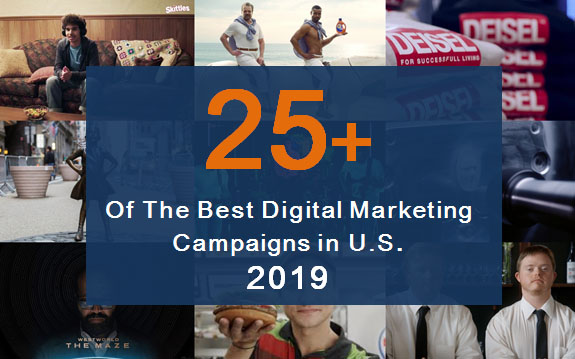10 Marketing Strategies to Adopt in Times of Crisis
Digital Marketing | Apr 28, 2020

Photo by Brian McGowan on Unsplash
The COVID-19 outbreak has drastically affected the business industry worldwide. Companies have shut down physical offices, resorting to the work-from-home arrangement—some even contending with running their operations with a skeletal workforce.
As a result, virtual meetings have quickly become the norm, as teams take their huddles via video conferences. Mostly, the topic of these online conversations is how to engage clients and customers, in spite of the distance; so that their business as a whole would keep running.
In this regard, it becomes even more crucial to have a strong marketing strategy in place. Uncertain times call for better business plans. Otherwise, there’s going to be some real dent in the bottom line, which would lead to budget cuts or downsized operations.
With that, consider including these 10 strategies in your marketing strategy plan to survive—even thrive—in this pandemic or any other crisis, for that matter.
10 Marketing Strategies to Adopt in Times of Crisis—A Focus on COVID-19
1. Address your clients’ or customers’ needs.
The simple truth is people are anxious over these uncertain times. They’re concerned about their health, first and foremost: What if they catch the virus? How are they going to pay for medical care, whether or not they can recover from their illness? At the same time, they’re fearful for their everyday survival: how they can keep their pantries stocked, possibly losing their jobs; how to pay for their bills; and many more. This is the perfect opportunity to look for ways to meet the real needs of your audience.
If your business is finance-related, produce content about how to protect one’s money during this COVID-19 crisis. If you’re in the food sector, offer tips on how consumers can prolong the shelf life of food items. The bottom line is, anticipate their needs. From there, address them one by one. Follow this guide on creating a content marketing strategy.
2. Pause the distribution of your company press releases.
The purpose of the marketing strategy above is to make empathy the center of your operations during this very fragile time in history. While you’re prioritizing people’s immediate needs, set aside your sales needs, as well.
Now is not a good time to talk about your new insurance products, however ready your employees are to serve. This can wait. Those press releases can take a backseat for now—unless, of course, your company announcements are in response to COVID-19.

Photo courtesy of AbsolutVision via Unsplash
If you’re in the finance industry and you’re offering a payment extension on loans, then that’s one exemption to the rule. In fact, this announcement should be a pinned post on your social media pages.
If your grocery store has launched delivery services to keep people from leaving their homes, that press release should definitely be upon your website. For non-COVID-19-related posts, don’t cross it out altogether from your digital marketing strategy; just postpone publishing it.
Related Article: Effective Tips and Tools Help Your Business Survive COVID-19 Pandemic
3. Focus on being personal.
It may feel like it’s tough to put a human touch on services, with social distancing and lockdowns strictly observed everywhere, but it’s possible to be personal with clients even on digital platforms. The key, as always, is authenticity.
Produce video content, sharing how you–as a team–have been coping with the crisis and what your plans are to protect your clients and consumers. This way, your audience would see that there are real, equally vulnerable people behind your strong, professional brand. Likewise, they will feel cared for.
4. Tweak your language and imagery.
Beyond the content topics and tone, the very text and visuals you use in messaging should be chosen very carefully before they become part of your marketing plan.
Below are some reminders when reviewing your content:
- Avoid using puns that tie in with the crisis. Although “hot summer fever sale” might sound very tempting, it’s not very tactful to use at this time when people are literally getting sick with fatal fevers. Change your language. More importantly, practice social sensitivity.
- Rephrase other common terms. Replace phrases, like “drop by the store”, as these won’t be relevant now.
- Drop the visuals that imply close, physical interaction. Images of social gatherings are likewise not as relevant as they should be now. Park them, in the meantime.

Image by StartupStockPhotos from Pixabay
5. Educate or entertain when posting on social media.
Most of the people you’re catering to are cooped up in their homes, coping with the fact that they have exceedingly more time in their hands now. They’re likely on their phones or tablets, surfing the Internet. Make their time online worthwhile by giving them meaningful content. Provide them with either education or entertainment.
Here’s one of the simplest, yet most effective marketing strategy examples: offer health-related content on your Facebook page. Talk about basic hygiene reminders or myths about COVID-19.
While you may not necessarily be in the healthcare sector, this “off-brand” content is acceptable, as people would want to keep themselves informed about the virus. Use different media such as photos, .gifs, and videos. As always, cite credible sources. If you want to keep your content brand-related, do it with tact and empathy in mind.
As for entertaining posts, maximize interactive content that will engage your audience. Polls are a good choice. Ask your audience what their top grocery essentials are or how they’re coping with their lockdown situation.

Photo by Kaboompics .com from Pexels
Related Article: 10 Social Media Management Strategies in Times of Crisis: COVID-19 Outbreak 2020
6. Make your website more visible.
As mentioned, consumers are most likely online, coping with the boredom of being on lockdown. If you want to catch them then, be where they are, especially when they search for your products and services. Search engine optimization is your best marketing strategy, in this aspect.
In a nutshell, you should have the following in place:
- Run a technical website audit. Technical errors make it hard for Google to index or read your site. This is why it’s important to perform an audit, to know which parts of your website need fixing.
- Re-evaluate your keyword strategy. Remember, keywords are the vehicle through which customers and clients find you. Understanding what phrases they use is a core component of a marketing strategy. Over time, though, search volume for keywords change. In fact, the very phrases change, especially in times of crisis. It becomes important then to reconsider what keywords you should prioritize, moving forward.
- Create targeted content. With fewer client and customer interactions, you will have more time to evaluate what specific topics your audience often brings up in actual sale exchanges. Ask each of your sales representatives to enumerate top questions they encounter from consumers, and incorporate these into your content.
- Update your old content. Yes, Google likes fresh, new content, but it also rewards simple tweaks, like changing the date of your article to reflect the newer version. Include sprucing up old blogs in your marketing plan.
Related eBook: The New Rules of Crisis Management — 3rd Edition 2019
7. Improve your local SEO.
Businesses get affected, as government policies change, to curb the spread of the virus. As a result, consumers would wonder if you’re open and operational, and which of your products and services are available, among others. This is why you should never forget to improve local SEO in your strategic marketing plan.
Review your business listings in different directories. Update them, as necessary. Pay special attention to your office or store hours. If you can have past clients write reviews, better. With a couple of good ones, you can increase your credibility. Remember, that trust factor is especially crucial during a crisis.
Related Guide: Local SEO: The Definitive Guide to Improve Your Local Search Rankings
8. Boost guest blogging efforts.
Now that you have more time in your hands, saturate the Web with more of your content through guest blogging. This has multiple benefits for you during this time. For one, it will boost your site’s credibility, and–by extension–your search engine rankings through backlinks. There will be a greater probability, then, that your market that’s surfing the Web will pass the time and will find you once they do an online search.
In addition, you will be able to reach a greater number of people, who can become potential clients and customers. Imagine getting published on an authoritative online fashion magazine or finance blog. Think about the avid readers you’ll be attracting through your guest blog posts. Thus, don’t forget to include this in your business strategy.

Photo by Alvaro Reyes on Unsplash
9. Reconsider your sales channels.
With the ongoing global lockdown, physical trips to the store or your office won’t be possible anytime soon. It’s important then to explore alternative channels to sell your business. Obviously, digital is the way to go.
Set up a page where people can order products online. This can be in simple Google Forms posted on your social media page or a well-designed website with online shopping features such as a cart and a digital wallet.
Meanwhile, if your main business is offering services—say, real estate consultancy or advertising, make yourself visible through webinars or premium content subscriptions.
People at home are looking for ways to relieve their boredom, remember? If they can tune in to your online training and learn a thing or two, then that won’t be a waste of time, will it? Include in your marketing plan the sales channels you’ll be using.

Photo courtesy of Negative Space via Pexels
Related Report: COVID-19: How Businesses are Handling the Crisis Report
10. Create a social media group.
While using social media is a given in every marketing plan, don’t just settle for setting up a winning fan page. Take note of the first tip: know your audience. People can’t go out and engage in personal interactions, as of the moment. With that, they’re craving for some semblance of community.
If you can provide that sense of fellowship and belongingness, then your engagement rate with your customers and clients will increase. One effective way to provide this experience is by creating your own social media group.
It’s better if the group is centered around the lifestyle or advocacy your brand represents, rather than the brand itself. People don’t like to be sold to, especially during this time. But they will most definitely support your finance company if you give them exclusive advice on how to best use their money during the crisis.
Final Word
Times are changing, and so should your marketing strategy. Re-evaluate your plan and incorporate these strategies. The outbreak may be over in a few more months, but what you decide to do now can surely make a significant impact in your business, in the long runs
Warning: Undefined array key "sidebar_ads" in /home/dmc/public_html/wp-content/themes/DMC/functions/helpers.php on line 824





